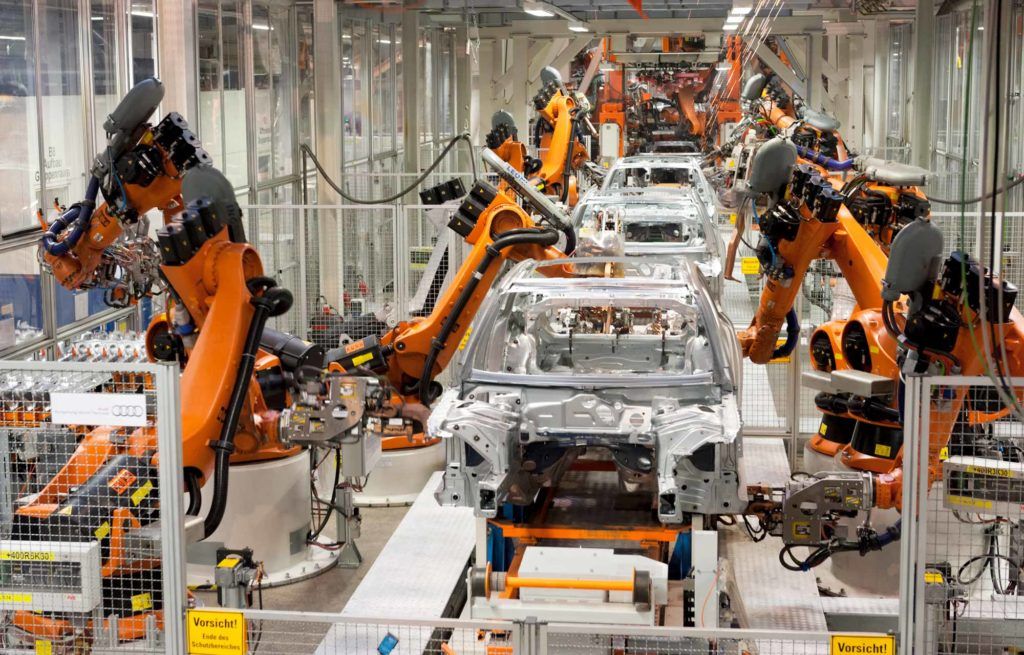Credit: Pixabay

The future of the workplace is more contested in 2017 than it has been since children were pulled up from the mines and down from the chimneys[1. Some details here.].
First women deserve jobs. Now robots are muscling in. But what about the men?
The long-standing struggle to accord women both equal opportunities and genuinely equal pay is plainly the most deserving issue in labour history – since slaves and children were emancipated.
Yet much of 21st century business continues to behave in a manner that is simply clownish. As if the human resources department had decided to take seriously only candidates with odd-number birthdays, blue eyes, or from the west of the Rockies (in UK terms, from north of the Watford Gap services). Just for a moment, forget about equity. Male-preference hiring and reward represent the dumbest business decision since the South Sea Bubble. Even if all you’re interested in is ‘building value’ (a polite way of saying ‘making money’).
For the past generation, women’s counter-effort has focused on a strategic push for parity at corporate board level. While quotas are complicated (women are not a “minority”), in some countries this move has been encouraged by government action; in others (such as the UK) by a voluntary pledge[2. See the New York Times report by Alison Smail and Claire Cain Miller – Spain, Iceland, France and Germany all now have legal quotas.]. Except where it’s the law, progress toward parity has been unimpressive.
More recently, through a series of increasingly bitter guerilla actions, the question of women’s presence and reward in the workplace has found another special focus – in the world’s hottest jobs locale and among some of its most storied companies: the tech scene of Silicon Valley. And as if things could get worse – for the companies, the women, and the moral order – we’ve seen serious entanglement between issues of workplace opportunity and reward, and issues of harassment. Harassment is a weasel word that down-plays what actually happens. When a boss propositions a subordinate, however casually, it can turn her life into hell on earth[3. Disturbingly illustrated by venture capitalist Ellen Pao, in “This Is How Sexism Works in Silicon Valley. My lawsuit failed. Others won’t.” The cheap term for sexual harassers beloved of the UK press, “sex pests,” trivialises these situations unspeakably.].
And it’s not just Uber, Uber, Uber. The latest controversy was Google’s summary dismissal of a staffer who wrote an internal memo that (surprise!) ended up going external. He argued that conventional approaches to “diversity” were misguided, and unsupported by evidence. While parts of his argument have been seen as legitimate, he has been accused of wrapping it in a less evidence-based message. (Here’s The Full 10-Page Anti-Diversity Screed Circulating Internally at Google).
Non-Human Resources?
Meanwhile, astonishingly, the question of robots taking away jobs struggles to get high-level attention.
Yet fighting over whether women have the same right to jobs as men assumes that in the future there will be jobs for humans of any gender. In standard economics terms, it assumes there will still be “full employment” – the idea that most people who want jobs can get them.

As I argue in my latest book Will Robots Take Your Job?[5. Will Robots Take Your Job? A Plea for Consensus and see my UnHerd video.], the fact is that we really don’t know. The conventional wisdom is that “industrial revolutions” ultimately produce more, better-paid jobs. While this comforting assumption glosses over some hard historical lessons (there can be a long lag before these happy effects arrive – see Detroit’s long decline), the idea that there will be “full employment” in, say, 100 years’ time, seems pretty unlikely. As leading conservative intellectual Charles Murray recently wrote in the Wall Street Journal, it’s becoming increasingly hard to believe that a generation ahead people will typically be able to earn a living by getting a job[6. Charles Murray in the Wall Street Journal, June 3, 2016: “Replacing the welfare state with an annual grant is the best way to cope with a radically changing U.S. jobs market—and to revitalize America’s civic culture“.].
Two great debates, but a common question: Who will have whatever jobs there are – one or two generations hence?
Without making a judgement on the nature/nurture debates about women and men and our respective capacities, three facts seem clear. For men, in particular, they are soberingly so.
Putting the squeeze on men
First, not only are women entirely capable of taking on technical jobs – and played key roles in the early development of computing – they also rate better at managing change and people, skills tied to the higher levels of “emotional intelligence” that women typically possess[7. This Wikipedia entry is well-referenced.].
Second, it’s plain that tomorrow’s jobs will be fundamentally different from yesterday’s. They will continue to be more focused on change; and also on the integration of emotional and other measures of “intelligence.”
The contrast with typically successful jobs of yesterday could not be more striking. In the bygone 20th century of Henry Ford, it’s plain that to be open to change and high in emotional intelligence would be a quite a disadvantage. Success for Henry Ford’s managers lay in mastery of the routine. That single fact helpfully illuminates a core 20th/21st century disjunction. C20th: predictability. C21st: innovation.
Third, while machines are already making inroads into “soft” areas like psychology[8. See, for example, Rosalind Picard’s ground-breaking book from twenty years back, Affective Computing (Cambridge, Mass., MIT Press, 1997) and the work of her company Affectiva.] it’s plain from the work of labour economists that routine tasks and much technical work are among those most susceptible to machine take-over[9. Eg, Carl Benedikt Frey and Michael Osborne, The Future of Work.]
Superwoman?
The upshot of the facts is this. Women are more suited to the kind of jobs that are emerging as key to 21st century economies; and these jobs are also least under threat from machines. Men, by contrast, are less suited to those jobs, and the jobs they typically excel at are under greater threat from machines.

My prediction? In two decades we shall certainly not have male/female parity in boardrooms and executive suites. The pendulum will have swung back to the 1950s in terms of gender balance. But this time it will be women who dominate pretty much everything, and men who will be the underlings. It’s the logic of innovation-focused, change-focused, emotional-intelligence-dominated business, and the parallel march of machine intelligence.
But be careful what you wish for. Will these superwomen who run pretty much everything find their relationships with men increasingly difficult? Plenty of high-achieving women already do[10. Hanna Rosin in her remarkable article in the July, 2010 Atlantic Monthly (and subsequent book The End of Men) makes some related points. “Men dominate just two of the 15 job categories projected to grow the most over the next decade: janitor and computer engineer. Women have everything else—nursing, home health assistance, child care, food preparation.”].










Join the discussion
Join like minded readers that support our journalism by becoming a paid subscriber
To join the discussion in the comments, become a paid subscriber.
Join like minded readers that support our journalism, read unlimited articles and enjoy other subscriber-only benefits.
Subscribe